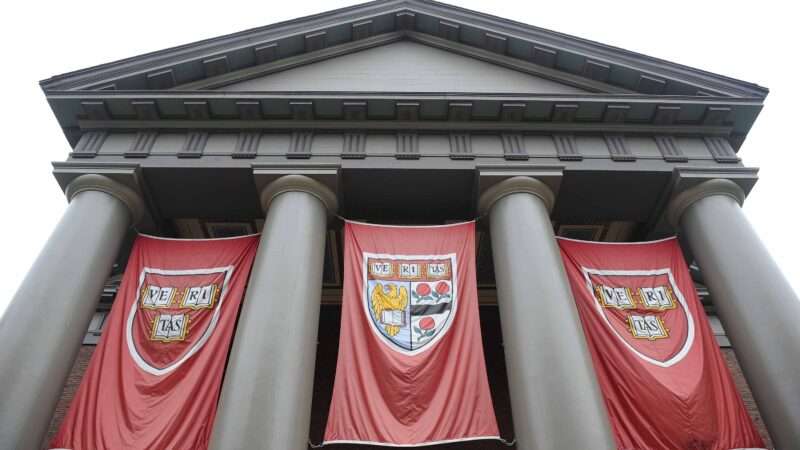
The American Council of Education filed an amicus brief to the U.S. Supreme Court on Monday, arguing that race-conscious admissions policies are protected by the First Amendment. The trade group, which says its member schools "educate two out of every three students in all accredited, degree-granting U.S. institutions," claims that if the Court prevents universities from considering race in admissions, it would chill the speech of students who want to discuss their racial or ethnic background in their applications. The group further argues that considering race in admissions is an expression of academic freedom.
The brief was submitted for consideration in two connected cases the Supreme Court will hear this fall, Students for Fair Admissions Inc. v. President & Fellows of Harvard College and Students for Fair Admissions (SFFA) v. University of North Carolina at Chapel Hill. The two cases were originally combined but were separated after Associate Justice Ketanji Brown Jackson recused herself from the case, as she is a member of Harvard's Board of Overseers. In the lawsuits, SFFA alleges that "race-conscious" admissions practices allow elite colleges to place illegal quotas on the number of Asian-American students they admit. In particular, this is achieved by deflating the "personality" scores of Asian applicants to justify rejecting them despite stellar academic and extracurricular qualifications. However, Harvard claims that race-conscious admissions practices are necessary to create a racially diverse student body.
"Knowing that experiences tied to race or ethnicity will be categorically disregarded, it seems inevitable that applicants would avoid writing about meaningful experiences that relate to their racial and ethnic identities," ACE wrote in its brief. "All applicants should be allowed and encouraged to talk about their life experiences and how they might contribute to an institution's educational environment or community commitments."
But does this claim hold legal water? "The argument that a ban on race-based admission preferences would restrict the First Amendment rights of applicants, that doesn't fly," writes Eugene Volokh, UCLA Law professor and author of the Reason-hosted blog The Volokh Conspiracy. He told Reason that "applicants would remain perfectly free to say whatever they like; it's just that universities wouldn't be able to make decisions based on the applicants' race."
Volokh explains further that "Title VI already prohibits universities from discriminating against racial minority applicants and in favor of whites. Does that violate the First Amendment rights of students whose applications mention experiences that disclose their race (e.g., their involvement in Polish-American cultural groups, or how they struggled as the children of poor Irish immigrants)? Of course not; it just means that the universities can't prefer applicants because they are white."
If the Supreme Court rules that race-conscious admissions amount to a form of illegal racial discrimination, students who mention their race in college admissions would not have their First Amendment Rights violated or their speech chilled any more than applicants who disclose experiences related to their gender, which public colleges are also prohibited from considering. There is simply no reason to think that students would fear mentioning their ethnic background in admissions essays in a world without race-conscious college admissions.
Of course, the irony of ACE's assertion is that it fails to consider how the current admissions regime already has a chilling effect on the speech of students from "disfavored" racial categories. For example, despite applying to Harvard with the highest average SAT score of any racial group, Asian applicants are admitted at the lowest rates. Asian students, aware of how their racial background counts against them in Harvard admissions, would reasonably be wary of writing about experiences involving their heritage. Knowing that acknowledging your race can directly penalize your application surely results in a greater pressure to self-censor than knowing your race cannot explicitly be used to bolster your application.
ACE also claims that barring race-conscious admissions will impact academic freedom. However, Volokh says this is incorrect for similar reasons as ACE's speech-chilling claims. While academic freedom is an important legal protection for professors at public universities, this protection does not allow professors to discriminate based on certain protected classes.
A license to "consider" race in admissions looks a lot like permission to engage in racial discrimination, which both public colleges and the vast majority of private colleges receiving federal financial aid are banned from doing under Title VI. The Supreme Court will soon settle the matter.
The post American Council of Education Claims Ending Racial Preferences in College Admissions Would Chill Speech appeared first on Reason.com.







